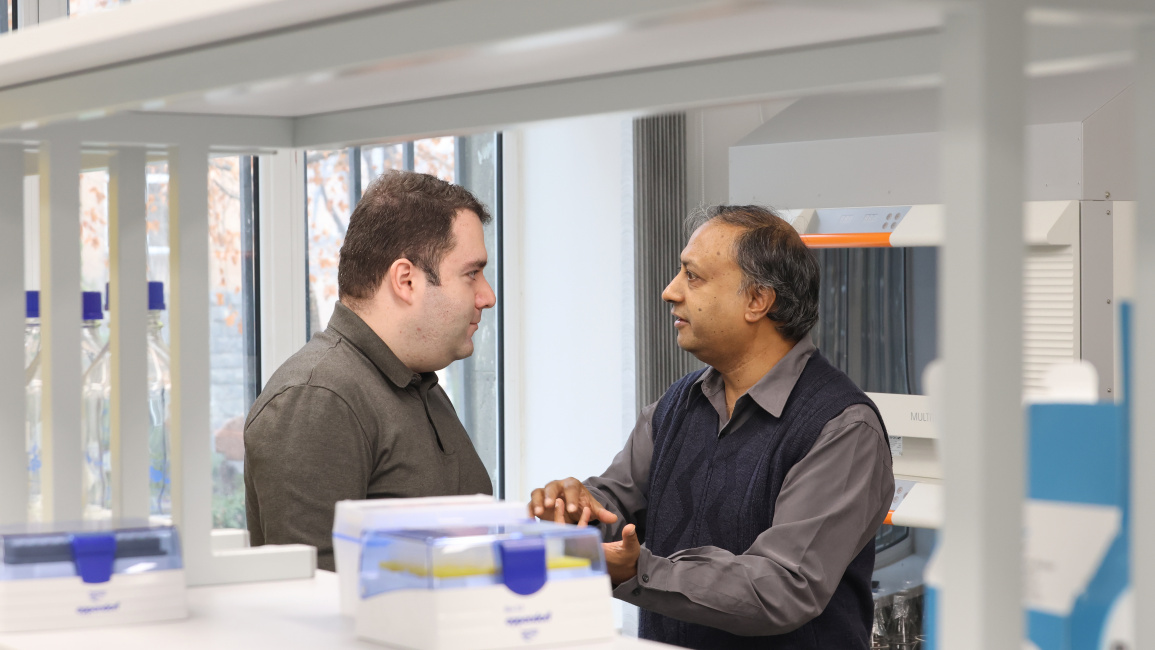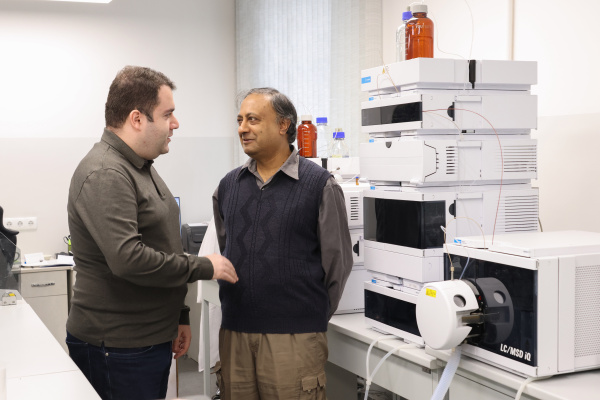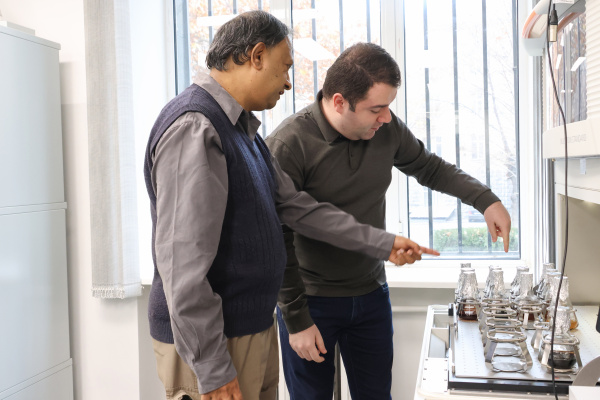January 13, 2025 | 10:30
Science
Educational programs
Research
Contemporary lessons on microbiology and energy exchange: Insights from Professor Nath
Professor Sunil Nath, a renowned scientist from the Indian Institute of Technology (IIT) Delhi, was invited to Yerevan State University (YSU) to expand scientific research cooperation, exchange experiences, and offer lectures on contemporary topics in microbiology and biochemistry. During his visit, part of YSU internal scientific and educational grant program, he delivered a lecture on "Principles of Microbial Physiology and Biochemistry."

We spoke with the leading expert in microbial physiology and biochemistry about the relevance of microbiological studies, the causes of metabolic disorders, and the ideas behind his "Nath's Two-Ion Theory".
- What is the primary goal of studying microbial physiology and biochemistry?

- Microbial physiology and biochemistry are connected to various scientific directions, ranging from cancer research to industrial processes. From a fundamental perspective, we are dealing with metabolism and evolution. Previously, the prevailing view in the scientific world was that cancer is the result of genetic issues. However, there is now a deeper understanding that cancer is, in fact, the outcome of metabolic disorders. In this regard, the most important role is played by the synthesis of ATP (adenosine triphosphate) by mitochondria.
ATP, which is produced in mitochondria, leaves the cell and is used in our muscles to meet energy demands during activities such as eating or performing other actions. The human body produces approximately 75 kilograms of ATP daily to maintain vital functions. Metabolic disturbances are the cause of a range of diseases, including cancer. These studies also help us understand where diseases that were previously unexplained might originate.
- How important is knowledge of the basic principles of microbial physiology for students?
- This topic is not only crucial for students but also for anyone interested in biological sciences. Studying microbes under a microscope only provides a structural image; however, understanding their functions (such as the work of proteins and enzymes) requires a more in-depth approach. Therefore, understanding biological systems demands the integration of physical, chemical, and biological processes.

The study of microbial energy exchange is essential for all living organisms. Thanks to innovative technologies, we are now able to trace back millions of years and understand how metabolic processes have evolved. Technological advances enable us to uncover the deep-rooted causes of energy exchange and evolutionary changes.
- What innovations would you highlight in the field of microbial research?
- In the 1990s, both India and Armenia faced similar challenges in scientific development, such as a lack of equipment and funding. However, significant changes have occurred since then. Ultra-precise equipment has become an integral part of modern science. Here at YSU, I see many state-of-the-art devices that enable the creation of new knowledge.
Small countries can play a significant role in innovation and scientific development. The strength of small nations lies in their educated populations. An educated person can carry out important research and advance science within their own country, without the need to go abroad.
It is also a great honor for me to present my own theory, known as "Nath's Two-Ion Theory". This theory significantly addresses the regulation of metabolic processes and the mechanisms related to them.

